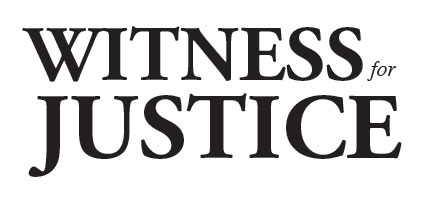Commentary: Silence = Death. Let’s raise our voices!
 As citizens of this great republic, we know that one way to ensure our voices are heard is in the voting booth. There is truth in the adage, “The squeaky wheels get the grease.” Yet without an organized strategic plan, marginalized groups can find themselves spinning their wheels.
As citizens of this great republic, we know that one way to ensure our voices are heard is in the voting booth. There is truth in the adage, “The squeaky wheels get the grease.” Yet without an organized strategic plan, marginalized groups can find themselves spinning their wheels.
In 1987, a group of politically astute LGBT advocates coined the slogan “Silence = Death” in response to the AIDS epidemic. Through shrewd organizing efforts, the AIDS Coalition to Unleash Power (ACT UP) helped to bring about legislation for medical research, treatment, and policies, which helped to mitigate the loss of health and lives.
Nearly 30 years later, two African-American performing artists became political “squeaky wheels” to cast light on the Black Lives Matter movement. R&B/Pop diva Beyoncé used her platform at the Super Bowl 50 halftime show to debut a new song, “Formation.” She performed with back up dancers in Black Panther berets and spouted lyrics about her roots. She sang, “I like my baby hair, with baby hair and afros. I like my Negro nose with Jackson Five nostrils,” celebrating traits that are non-European and beautiful. Queen Bey ended her performance with a raised fist, a symbol of Black Power.
Almost a week later, Kendrick Lamar, rapper extraordinaire, performed renditions of his hits singles “The Blacker the Berry” and “Alright” at the 58th annual Grammy Awards. He walked onto the stage bound in chains. Other dancers performed from behind prison bars in an obvious commentary on the mass incarceration of men of color. As the song progressed, he challenged any racists who listened, “You hate me, don’t you? You hate my people. Your plan is to terminate my culture.” The stage lights dimmed, and the setting transformed from the prison yard to a scene with African tribal dancers performing around a blazing bonfire. Provocative indeed!
Since Trayvon Martin’s death and the acquittal of his killer, young African-American activists have tried to shine a spotlight on the unjust laws affecting the black community. This emerging movement drew inspiration from the Civil Rights Movement, the Black Power movement, the 1980s black feminist movement, the LGBT movement, and others. Through social media, they have boldly shared images and stories depicting the inhumane treatment of people of color. Their strategy is beginning to work, so much so that their message is breaking through to other areas of our culture, like the performances mentioned here and the presidential races.
People of all ages and hues are beginning to talk about violence toward people of color. Possible policy changes are afoot. We, too, must work to right this systemic ill. History has shown us that silence equals death. No longer can we sit on the sidelines. We must meet, strategize, organize, lobby, and vote. Leaders of all types are making their voices heard against this plight. We, too, must join in by adding our voices.
Bentley de Bardelaben is Executive for Administration and Communications.
View this and other columns on the UCC’s Witness for Justice page.
Donate to support Witness for Justice through the Neighbors in Need offering.
Click here to download the bulletin insert.
Related News
It’s Time to Get into Good Trouble
On Tuesday, April 3, history was made by U.S. Senator Cory Booker who spoke on the Senate...
Read MoreReflections on a Christian Understanding of State and Government
The testimony of both the Hebrew and Christian scriptures as well as theological reflections...
Read More“What is Wrong with You People?”
I am writing this article from New York City as I engage with CSW, the United Nations...
Read More

